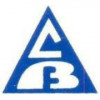Filter interviews by
HLS Asia Interview Questions and Answers
9 Interview questions
The efficiency of an I.C. engine can vary depending on factors such as design, fuel type, and operating conditions.
Efficiency of I.C. engines typically ranges from 20% to 40%, with some high-performance engines reaching up to 50%.
Factors affecting efficiency include compression ratio, combustion process, and heat transfer losses.
Improvements in engine design, such as turbocharging and direct injection, can increas...
A circuit breaker is an electrical switch designed to protect an electrical circuit from damage caused by excess current.
Automatically interrupts the flow of electricity when a fault is detected
Can be reset manually after tripping
Protects electrical devices and wiring from damage
Commonly used in homes, buildings, and industrial settings
Diesel engines generally require more maintenance than gasoline engines.
Diesel engines have more complex systems and components that require regular maintenance.
Diesel engines require more frequent oil changes and fuel filter replacements.
Diesel engines may require additional maintenance for emissions control systems.
Gasoline engines generally have simpler maintenance requirements.
Petrol engines use spark ignition, while diesel engines use compression ignition.
Petrol engines use spark plugs to ignite the fuel-air mixture, while diesel engines rely on compression to ignite the fuel.
Petrol engines typically have higher RPM (revolutions per minute) compared to diesel engines.
Diesel engines are more fuel-efficient than petrol engines.
Petrol engines are generally quieter and smoother in operatio...
It depends on the specific engines being compared.
Engine power can vary greatly depending on factors such as size, design, and technology.
For example, a high-performance sports car engine may be more powerful than a small economy car engine.
Comparing specific engines would be necessary to determine which is more powerful.
No, diesel engines are designed to run on diesel fuel, not petrol.
Diesel engines require diesel fuel for proper combustion
Petrol has different combustion properties compared to diesel
Running a diesel engine on petrol can cause damage to the engine components
The engine may not run efficiently or may not run at all
A diode is a semiconductor device that allows current to flow in one direction only.
Diodes have two terminals - an anode and a cathode.
They have a forward voltage drop, typically around 0.7V for silicon diodes.
Diodes exhibit non-linear current-voltage characteristics.
They are commonly used in rectifiers, voltage regulators, and signal demodulation.
Examples of diodes include silicon diodes, Schottky diodes, and lig...
The earphone converts electrical signals into sound waves, the battery provides electrical energy to start the vehicle, and the mobile charges by converting electrical energy into stored energy.
Earphones work by receiving electrical signals from a device and converting them into sound waves that can be heard by the user.
The battery in a vehicle provides the necessary electrical energy to start the engine by supply...
IC engine has 4 strokes: intake, compression, power, and exhaust. Spark plug ignites fuel-air mixture. Voltage supply ensures spark plug works.
Intake stroke: fuel-air mixture enters the cylinder
Compression stroke: mixture is compressed by the piston
Power stroke: spark plug ignites mixture, causing an explosion that pushes the piston down
Exhaust stroke: piston pushes exhaust gases out of the cylinder
Spark plug crea...
HLS Asia Interview Experiences
15 interviews found
I applied via Campus Placement and was interviewed in Feb 2024. There was 1 interview round.
(5 Questions)
- Q1. What is the meaning of power factor? Working principle of alternator
- Q2. Difference in mosfet and fet
- Q3. Use of capacitor?
- Q4. Speed of rotor of windmill in rpm
- Q5. Differentiate between induction motor and synchronous motor
I applied via Campus Placement and was interviewed in Feb 2024. There were 2 interview rounds.
(2 Questions)
- Q1. What is diode, and it characteristics
- Ans.
A diode is a semiconductor device that allows current to flow in one direction only.
Diodes have two terminals - an anode and a cathode.
They have a forward voltage drop, typically around 0.7V for silicon diodes.
Diodes exhibit non-linear current-voltage characteristics.
They are commonly used in rectifiers, voltage regulators, and signal demodulation.
Examples of diodes include silicon diodes, Schottky diodes, and light-em...
- Q2. What is circuit breaker
- Ans.
A circuit breaker is an electrical switch designed to protect an electrical circuit from damage caused by excess current.
Automatically interrupts the flow of electricity when a fault is detected
Can be reset manually after tripping
Protects electrical devices and wiring from damage
Commonly used in homes, buildings, and industrial settings
(1 Question)
- Q1. Tell me about Yourself
Interview Preparation Tips
I applied via Campus Placement and was interviewed in Jan 2024. There was 1 interview round.
(2 Questions)
- Q1. Two considerations while performing Drilling. Function of Cementing/Why cementing is done.
- Q2. Why power is transferred at high volatage to the field.
Interview Preparation Tips
- Logging
- basic electrical
- Drilling
I applied via LinkedIn and was interviewed in Apr 2024. There was 1 interview round.
(2 Questions)
- Q1. Introduce yourself
- Q2. Basic safety questions
Interview Preparation Tips
I applied via Campus Placement and was interviewed in Sep 2023. There were 5 interview rounds.

It was psychometric test
(1 Question)
- Q1. It was an online technical test
(1 Question)
- Q1. Questions related to petroleum engineering especially from well logging were asked
(1 Question)
- Q1. Tell me about yourself. tell me about a time where you made a mistake and how you dealt with it Why do you want this job?
Interview Preparation Tips
- well logging
- 12th class physcis
I applied via Campus Placement and was interviewed in Aug 2023. There were 5 interview rounds.

It was a psychometric test.
(1 Question)
- Q1. It was 2 round Google form online test,1st one general aptitude 2nd one related to Core.
(1 Question)
- Q1. Core questions related to your Domain.
(1 Question)
- Q1. Common HR questions and they will check whether you are interested to join them or not as the role is very exhausting.
I applied via Recruitment Consulltant and was interviewed in Aug 2023. There were 2 interview rounds.
The first round was aptitude test which was basically a data interpretation round where we had to solve a lot of questions related to the data graph. Logical Reasoning section could be answered easily and included Venn Diagrams, Label interpretation, Blood Relations, Series and Sequences etc.
(1 Question)
- Q1. Questions on Electronic Circuits and Devices were asked such as diodes, trasistors, resistors, MOSFETs, fans(like why capacitor is used in fans), Solid state electronic devices etc
(1 Question)
- Q1. Tell about yourself

(2 Questions)
- Q1. Tell me about your self
- Ans.
Experienced Senior Executive with a proven track record in leading teams and driving business growth.
Over 10 years of experience in senior leadership roles
Strong strategic planning and decision-making skills
Successful track record in increasing revenue and profitability
Effective communicator and team builder
Led a team that achieved a 20% increase in sales last year
- Q2. Product knowledge
I applied via Campus Placement and was interviewed in Jan 2023. There were 2 interview rounds.
In aptitude test question level are high and question is on electrical, SOM, FM & HT
(2 Questions)
- Q1. Tell me about yourself
- Ans.
I am a Junior Cased Hole Specialist with a strong background in the oil and gas industry.
I have a Bachelor's degree in Petroleum Engineering.
I have completed internships with major oil companies, where I gained hands-on experience in cased hole operations.
I am familiar with various cased hole tools and techniques, such as perforating, logging, and plug setting.
I have excellent problem-solving and analytical skills, whi...
- Q2. Explain your project How does the earphone work How does battery start the vehicle How does mobile charge
- Ans.
The earphone converts electrical signals into sound waves, the battery provides electrical energy to start the vehicle, and the mobile charges by converting electrical energy into stored energy.
Earphones work by receiving electrical signals from a device and converting them into sound waves that can be heard by the user.
The battery in a vehicle provides the necessary electrical energy to start the engine by supplying p...
Interview Preparation Tips
- Electricals
- Electronics
- Strength of Material
- Fluid Mechanics
- Electrical Works
Top trending discussions






HLS Asia Interview FAQs
Some of the top questions asked at the HLS Asia interview -
Tell us how to improve this page.
HLS Asia Interviews By Designations
- HLS Asia Junior Engineer Interview Questions
- HLS Asia Engineer Interview Questions
- HLS Asia Production Graduate Engineer Trainee Interview Questions
- HLS Asia HSE Officer Interview Questions
- HLS Asia Graduate Engineer Trainee (Get) Interview Questions
- HLS Asia Senior Executive Interview Questions
- HLS Asia Wireline Logging Engineer Interview Questions
Interview Questions for Popular Designations
- Senior Executive Interview Questions
- Associate Interview Questions
- Senior Associate Interview Questions
- Sales Executive Interview Questions
- Consultant Interview Questions
- Graduate Engineer Trainee (Get) Interview Questions
- Java Developer Interview Questions
- Data Analyst Interview Questions
- Show more
Overall Interview Experience Rating
based on 12 interview experiences
Difficulty level
Duration
Interview Questions from Similar Companies
HLS Asia Reviews and Ratings
based on 47 reviews
Rating in categories
|
Junior Engineer
6
salaries
| ₹8 L/yr - ₹9.6 L/yr |
|
Senior Accountant
5
salaries
| ₹4.2 L/yr - ₹5.6 L/yr |
|
Assistant Manager
4
salaries
| ₹6 L/yr - ₹6.5 L/yr |
|
Technical Trainee Engineer
4
salaries
| ₹8 L/yr - ₹9.9 L/yr |
|
Technical Professional
4
salaries
| ₹3.5 L/yr - ₹16 L/yr |

Linde India

ACB (India)

Madina Group

Sanmarg Projects
- Home >
- Interviews >
- HLS Asia Interview Questions













